How Israel’s citizen soldiers forced Benjamin Netanyahu to retreat on judicial reform
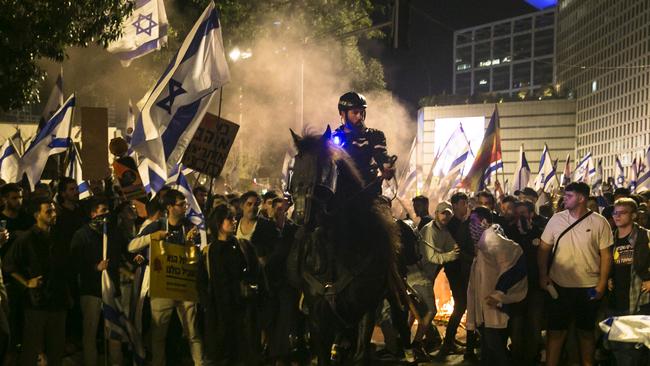
For weeks, military reservists took to the streets in large numbers, joining huge popular demonstrations against Mr Netanyahu’s proposed changes, and, for some at least, imbuing the protests with a sense of patriotism and duty. Then some reservists began saying they would refuse to report for duty in protest.
That set off alarms with the military’s chief of staff, Gen. Herzi Halevi, who warned Defence Minister Yoav Gallant that the crisis in the ranks endangered the country, Israeli security officials said. Mr Gallant, in turn, publicly urged Mr Netanyahu to hold off as a matter of national security.
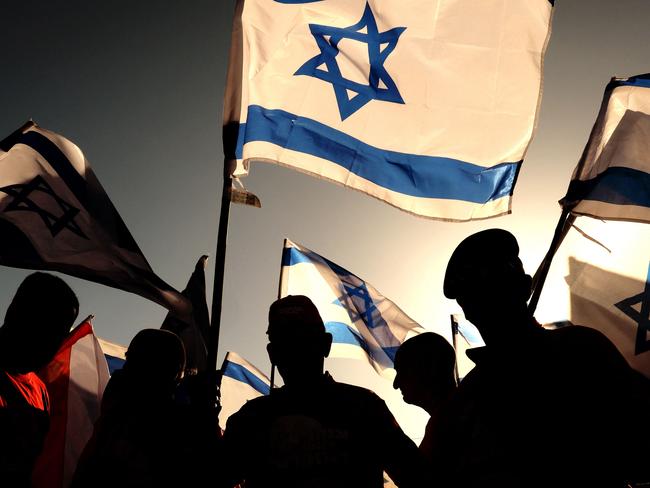
Mr Netanyahu then fired Mr Gallant, setting off strikes and civil unrest, before ultimately backing down Monday and agreeing to suspend his legislative campaign.
“It was the ‘military lever’ that got the government to back down, not the masses in the streets,” said Yuval Elbashan, an Israeli political commentator and former law school dean at Ono Academic College in Jerusalem. “It was the cracks in the army.”
Political disagreements in Israel inevitably bleed into the armed forces, where a majority of Israeli men and women serve two-to-three-year stints. Most then continue to serve as reservists. Polls show that among Jewish Israelis, the military is by far the country’s most trusted institution.
The political power of the military and its members stems from the fact that they are widely perceived as a “people’s army” that broadly represents the society it serves.
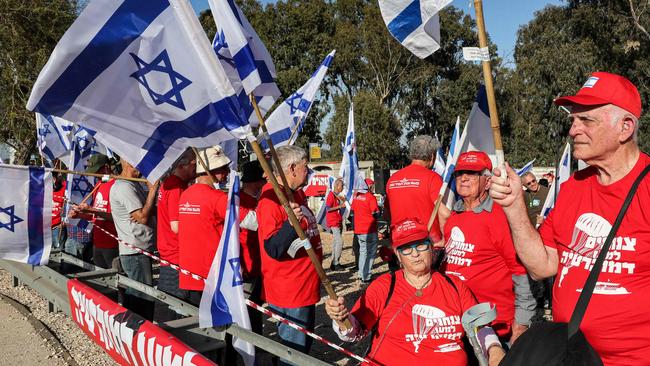
Mr Netanyahu and his allies want to give the government a bigger say in choosing judges and allow the nation’s parliament to override Israel’s Supreme Court. Supporters of the overhaul say Israel’s courts have too many left-wing judges out of step with the country’s increasingly right-leaning population.
The legislation draws support from the country’s ultra-Orthodox Jews, who generally don’t serve in the military and have sought to have that exemption codified into law, only to see those laws struck down by the Supreme Court.
Another base of support are the country’s religious nationalists, whose women often don’t enlist but whose men do. Supporters say the reservists were betraying their country by refusing to serve.
Mr Netanyahu nodded to the stakes raised by the reservists’ actions in a national address on Monday night.
“The State of Israel can’t exist without the Israel Defense Forces, and the IDF cannot exist if there’s refusal to serve,” Mr Netanyahu said. “Refusal by one side will lead to refusal by the other. Such refusal will be the end of our country.” Mr Netanyahu said he would try to work out a compromise with the opposition in the coming weeks. On Tuesday, President Isaac Herzog offered to mediate as tensions calmed down.
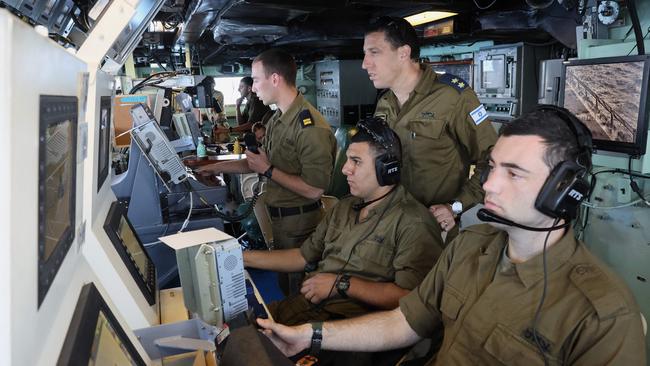
Israel’s army is largely drawn from the country’s large secular population, which drives the economy. For many of them, the fight against the judicial changes was personal, and they said they would continue to protest until the legislation died for good.
Some said they put their lives on the line to defend Israel’s democratic values and wouldn’t be willing to do so if Mr Netanyahu’s plan was passed.
“From my first day of service, I was a soldier for the people of Israel, not for the ruler,” said Amit Farber, 59 years old, a reserve officer in Israel’s navy who joined the protest against the overhaul.
Others said they worried that a discredited judicial system would open the doors for outside bodies – such as the International Criminal Court – to try to prosecute them for alleged war crimes.
One retired Israeli colonel said he was asked to take part in a training in early May, but told the military to find someone else because he wasn’t willing to help the army until the judicial overhaul talks were resolved.
He joined up with Brothers in Arms, a group of reservists that helped organise the protests. He took his three young children to the protests every week and told them that it was a fight for democracy.
“We were part of a group that helped people in Israel wake up,” said another reservist, Nir Goldman, 51, who continued protesting on Tuesday on the side of a highway in central Israel with hundreds of others.
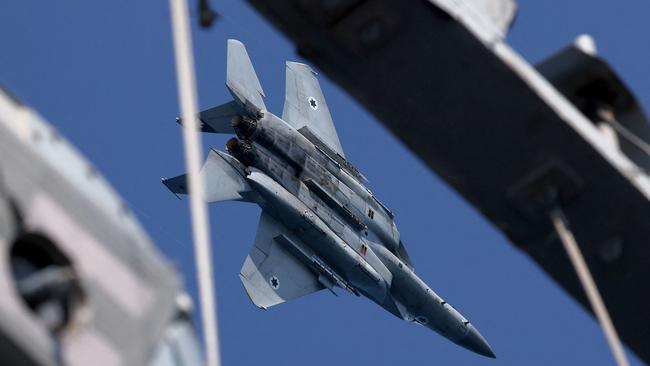
The Israeli military has about 126,000 active members and more than 400,000 reservists, according to the International Institute for Strategic Studies, a British think tank. The military turns to reservists to take part in air strikes in neighbouring countries and to help carry out raids targeting Palestinian militants in the West Bank.
Israeli soldiers in olive-green uniforms teach in schools, a radio station staffed by conscripted troops is a major source of daily news, and the mandatory service is a rite of passage for Jewish citizens in Israeli society.
The military is far less respected by Israel’s Arab minority, which isn’t required to serve in the army and doesn’t reap the same kinds of benefits as those who do. For many Jews, the army is central to ensuring one of the core aims of Israel’s founding – a haven for Jews from persecution.
“Our self-conception is that the Israeli army is still this force for unity and cohesion – the symbol of Israeli unity,” said former Israeli naval chief Ami Ayalon, who also served as the head of Israel’s domestic intelligence service. “Anything that damages that is very, very hard for us.” The soldiers’ protests carried more weight than those of the country’s other pillars, such as the tech industry and business leaders or even its president, who broke from the post’s largely ceremonial role to call for Mr Netanyahu to pause the overhaul, military experts said.
“To understand the power of this kind of protest, you need to understand that when parents here have a baby boy, the first thing they think about is what’ll happen to him when he heads to the army,” said Idit Shafran Gittleman, an expert on civil-military relations at the Institute for National Security Studies in Tel Aviv. “The army is in the veins of every citizen in Israel.”
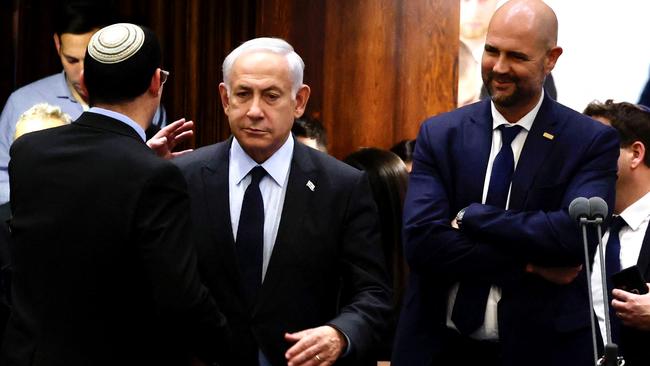
Until this year, political protests by Israeli reservists were isolated and often quickly put down by the nation’s leaders. The Israeli government court-martialed and imprisoned some Israeli soldiers who refused to fight in Lebanon in the 1980s. Two decades later, Israeli leaders punished pilots who refused to carry out air strikes on Palestinian cities under Israeli occupation.
This time, the protests began as a disparate collection of small WhatsApp military chat groups and quickly grew into a potent force. In February, the first Israeli reservists publicly vowed not to serve if Mr Netanyahu pushed through the judicial overhaul. Faced with a rising rebellion, Gen. Halevi publicly urged reservists to stay out of the protests.
Members of Mr Netanyahu’s cabinet denounced reservists who refused to serve. One minister called them “weaklings” and said she “despised each and every one of them.” The denunciations only seemed to fuel the reservists’ cause, as dissent and morale problems associated with the crisis were also trickling into Israel’s enlisted ranks, according to Israeli security officials.
In early March, 37 of 40 reservists in an elite jet-fighter unit known as the Hammers refused to turn up for training, according to Israeli military officials. The potential loss of Israeli pilots posed a particular concern for Israeli leaders because they carry out highly sensitive operations in Israel’s shadow war with regional foe Iran.
Then others took up the cause. Israel’s cyberwarfare teams, drone pilots and intelligence officers all vowed to stay away from volunteer reserve duty. Last week, only 57 per cent of reservists in an Israeli parachute brigade turned up for training on the first day, according to the officials.
Israeli security officials said the military began to worry adversaries would look to capitalise on any sense the country might be weak or distracted.
Dow Jones



Israel’s citizen soldiers, a pillar of the country’s identity, played a pivotal role in pressuring Prime Minister Benjamin Netanyahu to pause a planned judicial overhaul that divided the nation.